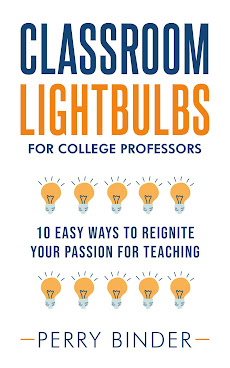
Yesterday I attended a Georgia lawyers conference (I'm a Florida Bar member) on million dollar verdicts in personal injury cases. In one of the cases, a women got a $1.25 million verdict for getting burned from her wrist to her knuckles by a cappuccino machine at a convenience store. The jury awarded $700,000 for her pain and suffering, and $525,000 for future medical expenses (the case was settled thereafter for a confidential amount)
At first blush, these verdicts sound laughable to the general public. On closer examination though, the media accounts usually leave out the important facts. The plaintiffs showed negligence on the part of the store. (that an employee cleaned the machine but failed to replace an internal part which led to the scalding) In addition, the woman's second degree burns caused nerve damage and excruciating pain which required heavy narcotic medication and necessitated the implantation of electronic stimulators on her spine - all of this a full year after the incident.
That case got me thinking again about the famous McDonalds coffee spill case from 20 years ago. Do you remember the media version or do you know all of the facts? This article helps give the other side of the story:
The Actual Facts about the McDonalds' Coffee Case
http://www.lectlaw.com/files/cur78.htm
Related to the McDonalds case, here's a portion of my upcoming presentation to Insurance professionals from ten countries, entitled:
OVERVIEW OF THE UNITED STATES CIVIL COURT SYSTEM & PRODUCTS LIABILITY LAWS
Questions to think about before our session:
A lawsuit can last anywhere from two to ten years in the United States. (I worked on two cases lasting thirteen years!) How does this compare with court cases in your country?
In some civil cases, a U.S. plaintiff may request punitive damages, pain and suffering, emotional distress, and loss of a spouse’s love and affection. How do these types of damages compare with remedies in your country?
Is the U.S. legal system “out of control,” as many in the insurance defense industry suggest, or does the media only highlight and portray the most outrageous cases in its news reporting?
- The U.S. legal system is at times inefficient, with lengthy appeals and little control over the Discovery process at the trial level
- Arbitration is a viable alternative to litigation but it is very difficult to appeal an adverse ruling
- What defendants fear the most in the U.S. legal system:
o Punitive damages, pain and suffering awards, juries
- What plaintiffs fear the most in the U.S. legal system:
o Delayed justice, attorney fees, and court costs
- The media shapes public perception of the U.S. and international legal systems
o The McDonald’s coffee spill case and the BP Oil case
o The Amanda Knox case
§ The U.S. and Italy’s court systems and media
I. Beginning the litigation process – you need “standing to sue”
Sample “Causes of Action” – Products Liability CaseA. Negligence - -was the defendant careless?
1. Liability
-Duty of defendant to plaintiff
-Breach of duty (failure to act “reasonably”)
-Proximate Cause
2. Damages
- when can a plaintiff seek Punitive Damages?
Other causes of action
B. Gross Negligence
C. Fraud
D. Emotional distress
F. Loss of consortium
G. Strict Liability - -The manufacturer of a product may be liable to a customer even if it is not "at fault" - in other words, even if the manufacturer acted "reasonably"
H. Breach of Warranties
II. Legal Theories to Sue the manufacturer of a product
- Failure to warn customers of dangers
- The particular product the customer bought was defective
- The overall design of the product is defective
Which theory or theories did the plaintiff use in the McDonald’s spilled coffee case?
III. Types of Damages
-economic
-non-economic (pain and suffering)
-loss of consortium








































.jpg)